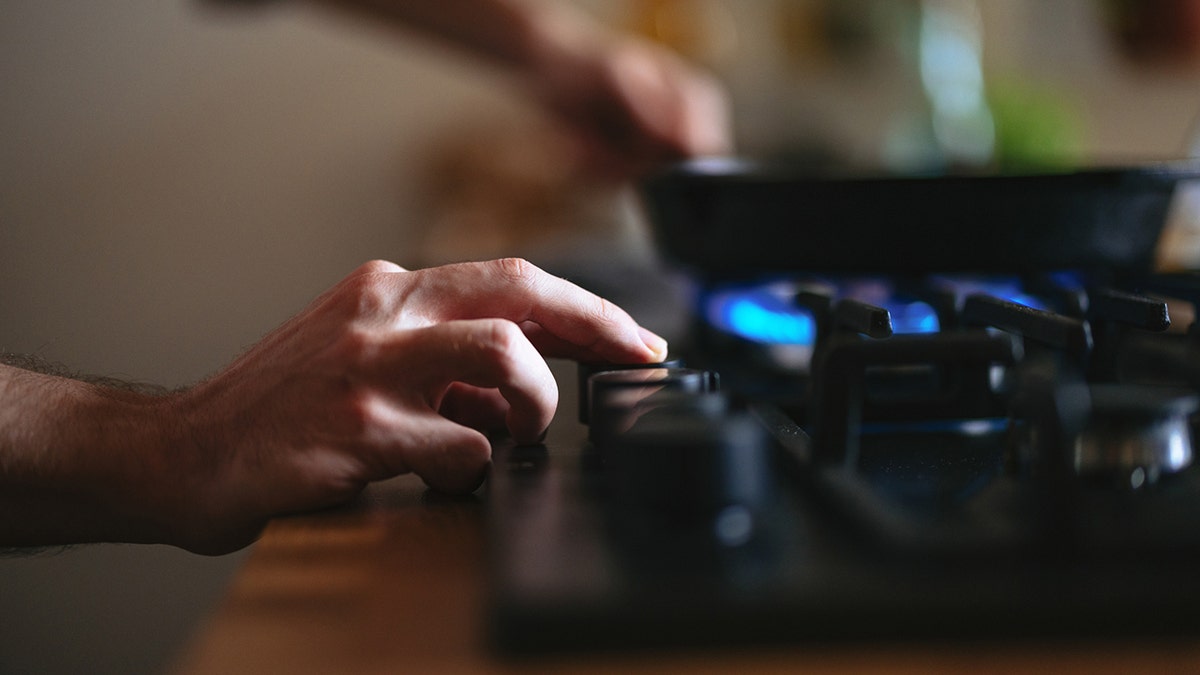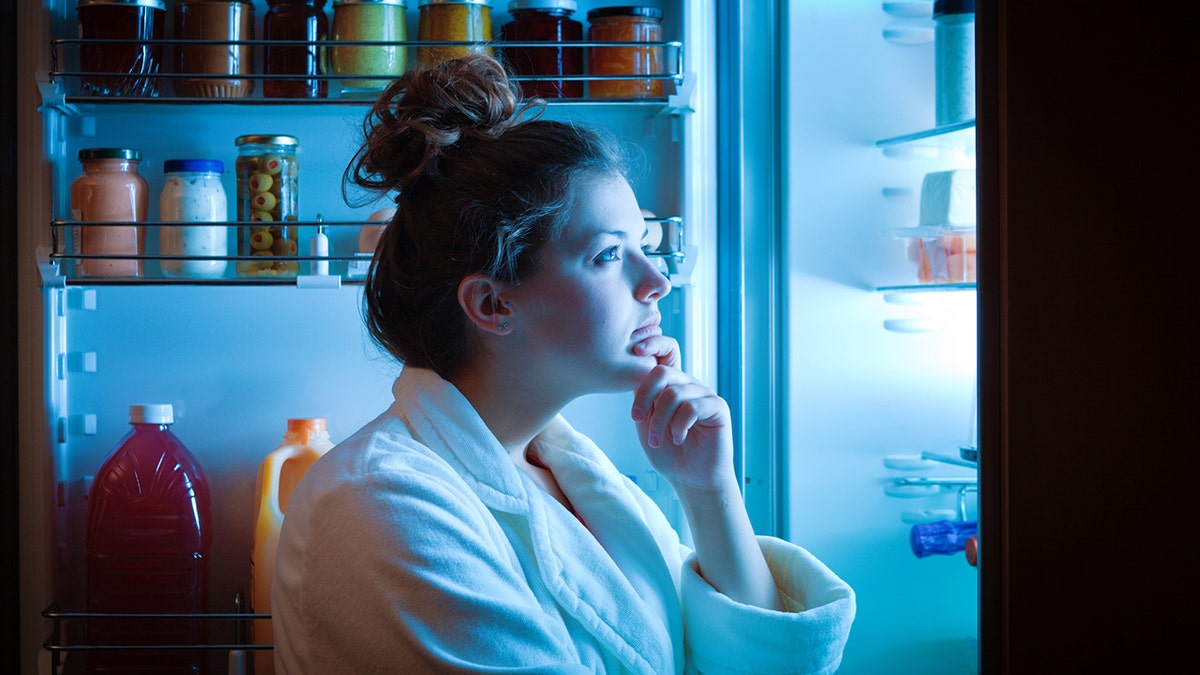Fox News Flash top headlines for July 12
Fox News Flash top headlines are here. Check out what's clicking on Foxnews.com.
A rare health condition could be causing some people to eat while they're sound asleep.
Sleep-related eating disorder (SRED) is an abnormal behavior called parasomnia that occurs during sleep.
The condition causes a person to eat — and in some cases even prepare food — while asleep, according to experts.
Kara Becker, a certified eating disorders specialist and national director of eating disorder programs for Newport Healthcare in California, told Fox News Digital that people who experience this sleepy snacking usually have no recollection of it the next morning.
A person can have more than one sleep-eating event per night — and it can happen even if the person isn't hungry, Becker noted.

The person is "generally not aware" of the sleepwalking or "might only have a hazy awareness," said a clinical psychologist. (iStock)
Certain medications can cause SRED, as can smoking cessation, alcohol and drug use, stress, narcolepsy and dieting, according to the expert.
Drug-induced SRED can also occur after taking sedative-hypnotic drugs to treat insomnia, Cleveland Clinic noted on its website.
FEELING HUNGRIER THAN USUAL? YOUR SLEEP SCHEDULE COULD BE THE CULPRIT, AN EXPERT SAYS
Symptoms of the disorder can include repeated episodes of "out-of-control" eating and drinking when asleep, eating strange combinations of foods, or loss of appetite in the morning, Becker said.
The expert also flagged the dangers that can come with cooking or eating during the night, such as fires, burns and cuts.

Symptoms of the disorder can include repeated episodes of "out-of-control" eating and drinking when asleep, eating strange combinations of foods, or loss of appetite in the morning. (iStock)
Fox News Digital also spoke to clinical psychologist Kelly Baron, PhD, director of the behavioral sleep medicine lab at the University of Utah, about symptoms and dangers of non-REM parasomnia.
SRED can cause dental issues and can interfere with weight-loss goals, Baron noted.
AMERICANS NEED MORE SLEEP, LESS STRESS, EXPERTS SAY, AS GALLUP POLL REVEALS TROUBLING FINDINGS
"In some cases, the person could cook and injure themselves or run into things," she warned.
"People can eat non-food items at times," Baron said. "I wrote a case series with a colleague and one patient had eaten dog food in his sleep or a casserole with his hands, making a big mess."

People with SRED could "fall or bump into things" or cut or burn themselves during an episode, an expert warned. (iStock)
Consuming large amounts of calories without mindfully eating is "not recommended for anyone and can be very disruptive to adequate nutrition consumption," Becker added.
"Some may even consume hazardous substances at night without knowing, putting their health immediately at risk."
So who is at risk?
SRED episodes are more likely to occur with lack of sleep, so conditions like snoring and obstructive sleep apnea can be risk factors, according to Cleveland Clinic's website.
People are more likely to have SRED if they’re closely related to someone who sleepwalks, if they feel stressed out or sleep-deprived during the day, if they suffer from an eating disorder, or if they have anxiety or depression.
"For other people, having another sleep disorder can trigger sleepwalking behavior, including night eating, so having a sleep evaluation is really important," Baron advised.

Those suffering from this condition should be evaluated at a sleep center, an expert said. (iStock)
For some people, sleepwalking is an inherited risk that continues from childhood into adulthood, according to Baron.
Treatment options
There are several treatment options for SRED, including reducing and eliminating triggers and addressing other sleep disorders, Baron told Fox News Digital.
For more Health articles, visit foxnews.com/health
People can also implement techniques to improve sleep behaviors and try taking medication, the expert said.
Becker also suggested implementing safety precautions at home, like installing locks on kitchen cabinets and refrigerators and removing dangerous obstacles.
CLICK HERE TO SIGN UP FOR OUR HEALTH NEWSLETTER
People with SRED should also get "plenty of regular sleep," she encouraged, as the condition can heighten with sleep deprivation.
"It’s also recommended to participate in a sleep study so that your health care provider can better understand your nighttime activity," she said.

SRED is most common in women under 20 years old, according to Cleveland Clinic. (iStock)
SRED is a condition separate from night eating syndrome (NES), which causes people to feel compelled to eat before bed or to wake up multiple times in the night to eat and then return to bed, Baron said.
CLICK HERE TO GET THE FOX NEWS APP
SRED is most common in women under 20 years old, according to Cleveland Clinic, but it can occur in anyone.
Between 1% and 5% of adults experience parasomnia.
Experts suggest seeking a health care provider if SRED episodes are suspected.











































